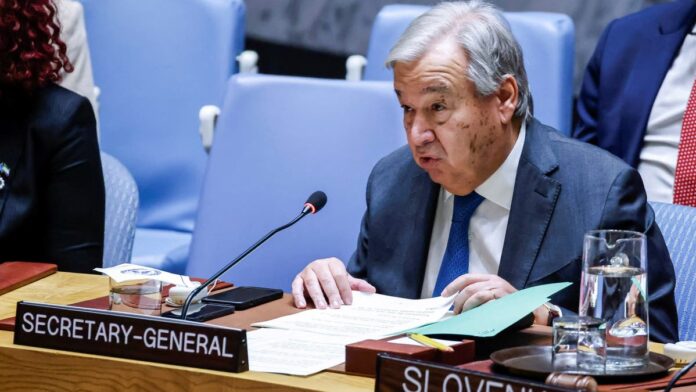The United Nations is experiencing a growing financial crisis, prompting the organization to make significant cuts in spending, freeze hiring, and reduce certain services. The crisis is a result of increasing unpaid dues from member states, with a shortfall of $2.4 billion in regular budget payments and $2.7 billion in peacekeeping contributions. The General Assembly’s Fifth Committee met to discuss the UN’s financial health, stressing that the delayed payments could undermine the UN’s ability to perform essential duties.
Several countries have yet to meet their financial obligations, and officials are warning that continued non-payment could damage the credibility of the UN. Speaking on behalf of Liechtenstein, Switzerland’s delegate pointed out that each delay in payment, hiring freeze, or service cancellation damages trust in the UN’s effectiveness. To address this issue, one suggestion was to allow the UN to retain unspent funds at the end of the year instead of returning them to member states. This would provide a buffer to keep operations running, particularly in January when payments are often delayed.
While temporary solutions like using emergency funds were supported, delegates from countries like Kazakhstan, Norway, and the United Kingdom emphasized that the core issue was the consistent delay or non-payment of dues. Norway urged financial reforms to address the underlying problem, while the European Union highlighted the real risks posed to operations. Singapore, representing the ASEAN group of nations, echoed concerns over the routine nature of the UN’s liquidity problems, citing the suspension of services by the UN Economic and Social Commission for Asia and the Pacific.
A particular concern was the U.S., which is responsible for over half of the unpaid dues and reportedly withholds funds for political reasons. Russia called for more transparency in how the UN manages its budget-saving measures, stressing the need for input from member states. According to the UN’s top management official, since May 9, some countries have paid in full across several budget categories, with 106 countries meeting their regular budget obligations as of the end of May.
The message from member states is clear: without timely and broad financial support, the UN’s ability to fulfil its responsibilities, particularly in times of crisis, is at serious risk.

